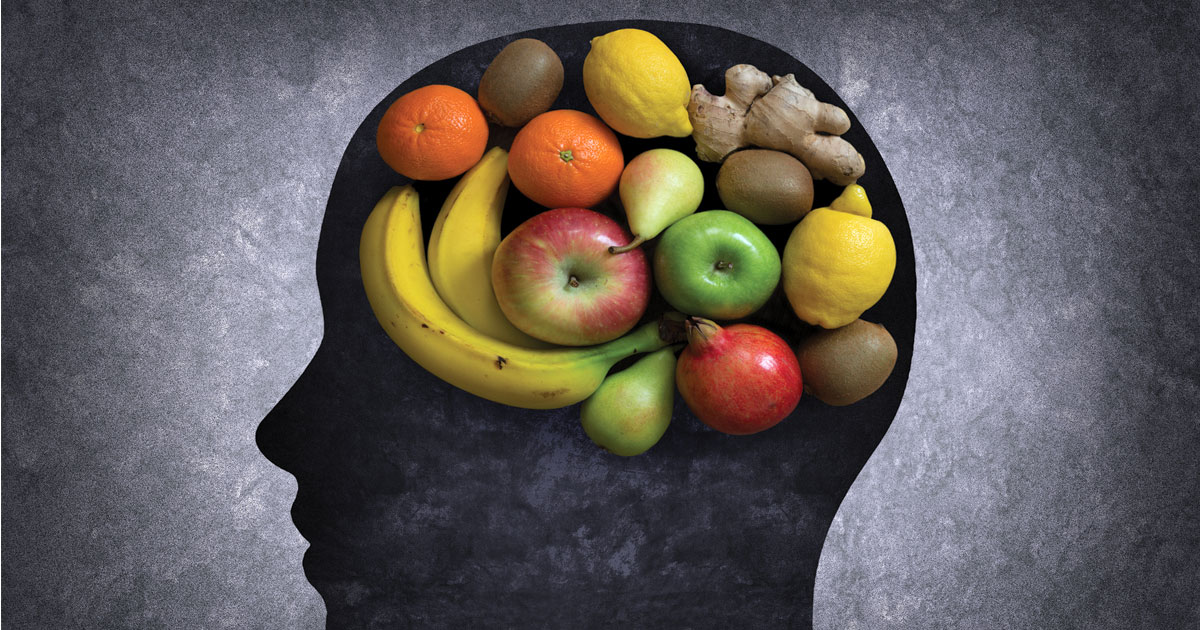
If you ask any doctor or registered dietitian, they’ll tell you that the best kind of diet for overall health includes a wide variety of healthy foods like whole grains, legumes, fruits, and vegetables. While all these foods are necessary for robust nutrition, many of the most important nutrients come from fruits. But even beyond providing the necessary vitamins and minerals that the body uses for everyday functions, there are also many components with health benefits that can improve cognitive function and prevent damage to brain cells.
A healthy diet that includes different types of fruit can support brain function in a variety of ways depending on the combination of nutrients found in a particular fruit. For instance, many fruits contain vitamin C, an essential nutrient that is involved in the production of some of the neurotransmitters the brain uses to regulate different aspects of health. Another example are the B vitamins, such as folate (B9), that are involved in mood regulation and general cognitive function. Similarly, vitamin K is thought to promote the survival of neurons.
One of the other major ways fruit can potentially improve brain function is by being a primary source of antioxidants. Numerous compounds in fruit can have antioxidant properties, including some vitamins as well as polyphenols and flavonoids. Antioxidants are so valuable because they protect neurons and other cells from free radicals, which are particles that are produced during various biochemical reactions in the body. If not absorbed by antioxidants, free radicals can cause oxidative stress, a condition that is associated with the development of many diseases and disorders.
Eating one piece of fruit of course can’t cure disease, but incorporating a variety of fruits into one’s daily diet has been shown to improve brain health and prevent some diseases. Studies have shown1, for example, that regular intake of the chemicals that fruits possess can lead to reduced risk of dementia, Alzheimer's disease, memory loss, and age-related cognitive decline. Moreover, antioxidants and other compounds in fruits can also have a positive impact on cardiovascular problems like high blood pressure or heart disease.
Essentially every kind of fruit can be beneficial for preventing cognitive impairment, but there are some that have particularly high concentrations of antioxidants and nutrients. These “brain foods” are especially important for older adults to prioritize in their diet. Below are some examples of fruits that are beneficial for brain health:
There’s no doubt that including a variety of fruits in your diet is one of the easiest ways to improve overall health and especially brain function. Fruits contain a number of substances that are associated with better brain function, but eating raw fruit isn’t the only way to access their benefits. Commercial food manufacturers regularly use fruit juices, essences, and concentrates to add flavor, texture, and nutritional value to all kinds of recipes, from kombucha and nutraceuticals to seltzers and cocktail mixes.
At FruitSmart, we are passionate about providing premium ingredients that can take a food or beverage product to the next level. But our experienced and qualified team is about more than just selling products; we’re also curious and creative and love unanswered questions. Beyond just providing products, we want to partner with you to help you develop new recipes that will wow your customers. If you’d like to learn more about our offerings, or about how you can partner with FruitSmart, please contact us today.
